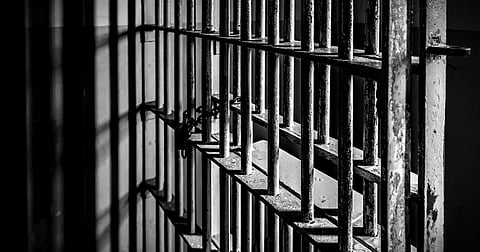

The Bench also directed the Union and state governments to respond to the three additional issues over and above the 17 issues highlighted by the committee appointed by the Supreme Court to look into the issue of prison reform, within three weeks.
—
ON Tuesday, in Re-Inhuman Conditions in 1382 Prisons, the Supreme Court perused a final synopsis of a series of reports submitted by the Supreme Court committee on prison reforms.
In 2013, the former Chief Justice R.C. Lahoti had written a letter addressed to the then Chief Justice of India, Altamas Kabir, highlighting the disturbing conditions in the 1,382 prisons in India.
The letter was treated as a public interest litigation and was registered under Article 32 of the Constitution of India.
The letter outlined four concerns relating to the rights of prisoners— overcrowding in prisons, unnatural deaths of prisoners, gross inadequacy of staff and the available staff being untrained or inadequately trained.
On September 25, 2018, a Supreme Court Bench comprising Justices Madan B. Lokur, S. Abdul Nazeer and Deepak Gupta directed the constitution of a three-member committee chaired by Justice Amitava Roy, former judge of the Supreme Court to give its recommendations on 17 terms of reference, such as overcrowding and unnatural deaths in prisons and inadequacy of prison staff.
The Bench comprising Justices Hima Kohli and Rajesh Bindal noted that on the next date of hearing, it will proceed issue-wise to examine the reports of the committee.
The Bench stated that it will also issue appropriate directions to ensure the effective implementation of the recommendations in the report.
In addition to the 17 terms of reference in respect of which the committee was requested to give its recommendations, the Bench recommended three more issues.
The recommendations are availability of medical facilities to inmates, imparting vocational training to inmates to make them useful members of the society upon their release and availability of information technology infrastructure in jail premises for assisting court processes and visitation rights.
The Bench asked the Union and state governments to file affidavits on the status of facilities in the context of the aforementioned three aspects within a period of three weeks.
Justice Bindal directed the amicus curiae, advocate Gaurav Agrawal, to inquire about the availability of video conferencing for examination of evidence and Orders for remand.
Justice Bindal weighed in on the issue of the production of "hard-core" criminals in courts that require 50–60 policemen to accompany them to prevent any untoward incidents.
The Bench also directed the amicus curiae to inquire on the possibility of introducing more open prisons and replanning old prison buildings in the cities.
The Bench emphasised the need for state governments to start the long-term process of identifying and locating land to relocate prison structures.
The matter has been posted for hearing on September 26.
On that date, the Bench will hear submissions and examine the chapters of the report on women and children in detention, transgender prisoners and death-row convicts.